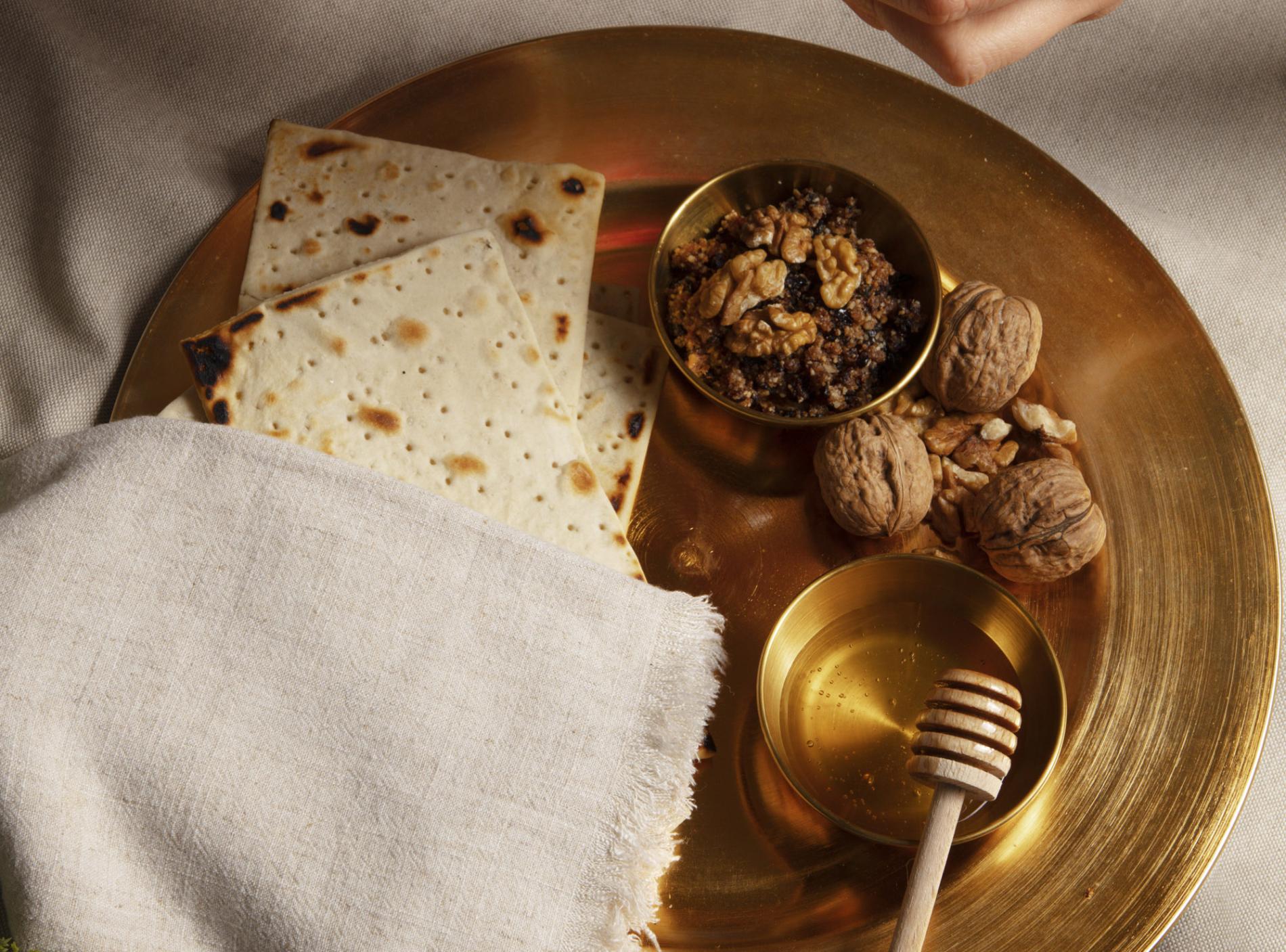Do Messianic Jews Celebrate Christmas? A Deep Dive Into Faith, Tradition, And Identity
Alright folks, let’s dive right into the heart of this topic. Do Messianic Jews celebrate Christmas? It’s a question that sparks curiosity, debate, and sometimes even confusion. Christmas is often seen as a Christian holiday, but Messianic Jews, who identify as both Jewish and followers of Jesus, have their own unique take on it. So, buckle up, because we’re about to explore this fascinating intersection of faith, culture, and tradition.
This isn’t just about whether they put up a tree or sing carols. It’s about understanding how Messianic Jews navigate their identity, balancing their Jewish roots with their belief in Jesus as the Messiah. For many, it’s not just a yes or no question—it’s a nuanced journey of faith and community.
As we unpack this topic, we’ll delve into the history, traditions, and perspectives of Messianic Jews. Whether you’re curious, skeptical, or just looking to learn something new, this article’s got you covered. So, let’s get started!
- Why Telugu Movies Download Is The Ultimate Way To Dive Into Tollywood Magic
- Mike Adriano 2025 The Untold Story Of A Rising Star
Who Are Messianic Jews?
Before we jump into the Christmas question, it’s essential to understand who Messianic Jews are. They’re a group of people who identify as Jewish but also believe in Jesus, or Yeshua, as the Messiah. It’s a unique blend of Jewish heritage and Christian faith, and it’s not without its challenges.
Messianic Jews often face criticism from both sides. Some traditional Jews see them as abandoning their heritage, while some Christians question their Jewish identity. But for those who follow this path, it’s about embracing both aspects of their identity.
Let’s break it down a bit:
- Why Ullu Wab Series Is Taking The Digital World By Storm
- Hot Web Series Ullu The Ultimate Guide To The Hottest Sensation In Digital Entertainment
- Messianic Jews believe in Jesus as the Messiah, just like Christians.
- They maintain many Jewish traditions, such as observing Shabbat and celebrating Jewish holidays.
- They see their faith in Jesus as a continuation of their Jewish heritage, not a departure from it.
What Does It Mean to Be Messianic?
Being Messianic isn’t just about beliefs—it’s about lifestyle. Many Messianic Jews live in communities where they can practice their faith openly. They attend synagogues where they worship Jesus while also honoring Jewish traditions.
Some key elements of Messianic life include:
- Studying both the Tanakh (Old Testament) and the Brit Chadasha (New Testament).
- Practicing Jewish dietary laws, such as keeping kosher.
- Participating in Jewish rituals, like bar or bat mitzvahs.
So, when we talk about whether Messianic Jews celebrate Christmas, we’re really talking about how they reconcile their Jewish heritage with their Christian beliefs.
Do Messianic Jews Celebrate Christmas?
Now, let’s get to the heart of the matter. Do Messianic Jews celebrate Christmas? The answer, like many things in life, is complicated. Some do, some don’t, and others celebrate it in their own unique way.
For those who do celebrate Christmas, it’s often seen as an opportunity to honor Jesus, the central figure of their faith. They might put up a tree, exchange gifts, or attend special services, but they often infuse these traditions with their Jewish heritage.
Others, however, choose not to celebrate Christmas at all. For them, it’s important to maintain their Jewish identity and avoid practices that might be seen as assimilating into mainstream Christian culture.
Why Some Messianic Jews Celebrate Christmas
For those who do celebrate Christmas, it’s often about celebrating the birth of Jesus, whom they see as the Messiah. They might incorporate Jewish elements into their celebrations, such as lighting candles or reading from the Tanakh alongside the New Testament.
Here are a few reasons why some Messianic Jews choose to celebrate Christmas:
- It’s an opportunity to honor Jesus’ birth in a meaningful way.
- It allows them to connect with the broader Christian community.
- They can incorporate Jewish traditions into their celebrations, making it a unique experience.
Why Some Messianic Jews Don’t Celebrate Christmas
On the other hand, some Messianic Jews choose not to celebrate Christmas. For them, it’s about preserving their Jewish identity and avoiding practices that might be seen as compromising their heritage.
Here’s why some Messianic Jews opt out of Christmas celebrations:
- They see Christmas as a holiday with pagan origins that have been Christianized.
- They want to maintain their Jewish traditions and avoid assimilation into mainstream Christian culture.
- They believe that celebrating Hanukkah and other Jewish holidays is a better way to honor their faith.
How Messianic Jews Celebrate Christmas Differently
For those who do celebrate Christmas, it often looks a little different than your typical holiday celebration. Messianic Jews might incorporate Jewish elements into their festivities, creating a unique blend of traditions.
Here are some ways Messianic Jews might celebrate Christmas:
- Lighting a special candle to honor the birth of Jesus.
- Reading passages from both the Tanakh and the New Testament.
- Attending a special service at their synagogue or church.
- Exchanging gifts with a focus on giving to others, inspired by the biblical story of the Magi.
Blending Jewish and Christian Traditions
One of the most fascinating aspects of Messianic Christmas celebrations is how they blend Jewish and Christian traditions. For example, some families might light a Menorah alongside a Christmas tree, or they might incorporate Hebrew prayers into their celebrations.
This blending of traditions reflects the unique identity of Messianic Jews, who see their faith in Jesus as a continuation of their Jewish heritage, not a departure from it.
Historical Context: The Roots of Christmas
To fully understand why Messianic Jews might or might not celebrate Christmas, it’s important to look at the historical roots of the holiday. Christmas, as we know it today, has a complex history that includes both pagan and Christian influences.
Some Messianic Jews argue that Christmas has pagan origins that have been Christianized over time. For example, the use of evergreen trees and the date of December 25th have been linked to pre-Christian winter solstice celebrations.
The Debate Over Christmas Origins
This historical context fuels the debate among Messianic Jews about whether to celebrate Christmas. Some believe that the pagan origins of the holiday make it incompatible with their faith, while others see it as an opportunity to honor Jesus in a way that’s meaningful to them.
Ultimately, the decision to celebrate Christmas is a personal one, and Messianic Jews approach it with a variety of perspectives.
Community and Identity
For many Messianic Jews, the question of whether to celebrate Christmas is tied to their sense of community and identity. They navigate a complex landscape where they must balance their Jewish heritage with their Christian faith.
Some Messianic communities encourage their members to celebrate Christmas, seeing it as an opportunity to connect with the broader Christian world. Others, however, emphasize the importance of maintaining distinct Jewish practices and traditions.
Finding Common Ground
Despite the differences in how they approach Christmas, Messianic Jews often find common ground in their shared faith in Jesus. They might celebrate different holidays, but they all see themselves as part of a larger community of believers.
This sense of community is crucial for Messianic Jews, who often face misunderstanding from both traditional Jews and Christians. By coming together, they create a space where they can express their unique identity and support one another in their faith journey.
Conclusion: Celebrating Faith and Identity
So, do Messianic Jews celebrate Christmas? The answer is yes, no, and sometimes. It’s a personal decision that reflects their unique journey of faith and identity. Whether they choose to celebrate Christmas or not, Messianic Jews are navigating a complex path that honors both their Jewish heritage and their belief in Jesus as the Messiah.
As we’ve explored in this article, the question of Christmas is just one aspect of what it means to be a Messianic Jew. It’s about finding a way to live authentically, honoring their roots while also embracing their faith.
So, what’s next? If you’re interested in learning more about Messianic Jews or their approach to holidays, I encourage you to dive deeper. Read more, ask questions, and engage with the community. And don’t forget to share this article with others who might find it interesting!
References
Here are some sources that helped shape this article:
- “Messianic Judaism: A History and Overview” by Dr. Mark Kinzer.
- “The Jewish Roots of Christian Faith” by Rabbi Daniel C. Juster.
- “Celebrating Christmas as a Messianic Jew” by Chosen People Ministries.
Remember, the journey of faith is a personal one, and there’s always more to learn. Keep exploring, keep questioning, and most importantly, keep celebrating your unique identity!
- Skymovieshdin 2025 Your Ultimate Guide To Streaming Movies Like A Pro
- Jamelizsmth Onlyfans Your Ultimate Guide To Content Success And More

Do Messianic Jews Celebrate Christmas? Jewish Voice

Do Messianic Jews Celebrate Easter? Jewish Voice

Messianic Jews John15.Rocks